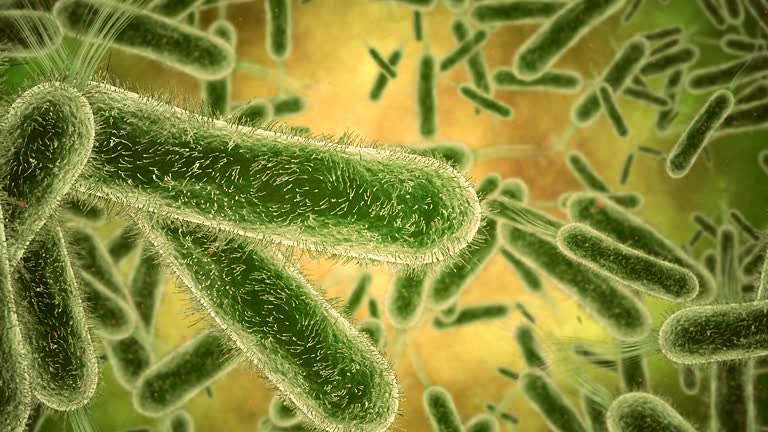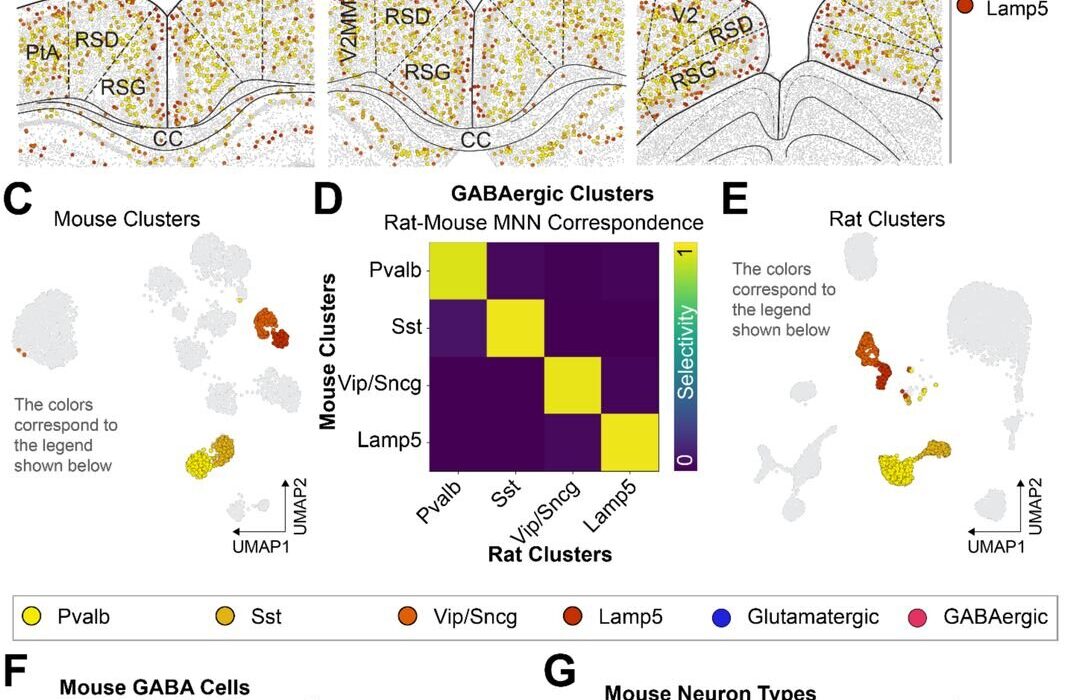When we think about bacteria, it’s easy to imagine something harmful. The word “bacteria” often evokes images of sickness and disease. However, there’s a fascinating world within us, where bacteria are not only harmless but essential to our survival. In fact, the human body is home to trillions of microbes, most of which are bacteria. They outnumber our own cells and are critical players in everything from digestion to immune function.
In this exploration of the surprising role bacteria play in your body, we’ll delve into the incredible ways these microscopic organisms impact our health, our development, and even our mood. So, next time you hear the word “bacteria,” don’t jump to conclusions. Instead, consider how these tiny creatures might be working to keep you healthy, happy, and thriving.
The Microbial World Within Us
The human body is home to a vast array of microorganisms. In fact, the human microbiome—the term used to describe the collection of all microbes living in and on our bodies—is made up of around 100 trillion cells, with bacteria being the dominant players. These microorganisms reside in various parts of the body, including the skin, mouth, gut, and even the lungs.
The gut alone hosts an estimated 100 billion bacteria per gram of feces, forming what is known as the gut microbiota. This community of bacteria is unique to each person, influenced by factors like diet, environment, and genetics. It’s also dynamic, constantly changing in response to various external and internal factors, including the foods we eat and the medications we take.
Bacteria make up about 90% of the cells in our body. It may sound surprising, but the total mass of bacteria in a human body is roughly the same as the weight of the brain! These bacteria are not random invaders; they have evolved alongside humans over millennia. Through this long relationship, bacteria have become integral to our biology and health.
The Symbiotic Relationship Between Humans and Bacteria
To understand the importance of bacteria, we need to first grasp the concept of symbiosis. Symbiosis refers to the close relationship between two different organisms that live together in a way that benefits at least one of them. There are several types of symbiosis, but the most relevant to our story is mutualism, where both organisms benefit from the relationship.
The relationship between humans and bacteria is largely mutualistic. The bacteria in our bodies gain a steady supply of nutrients from the food we consume, while we, in turn, benefit from their abilities to break down complex substances, help produce vitamins, regulate our immune system, and protect us from harmful invaders.
It’s easy to think of bacteria as simple organisms, but they are incredibly sophisticated. Their functions in the body extend far beyond just being passive passengers. Let’s take a deeper look at some of the critical roles bacteria play in human health.
Digestion: The Power Behind Your Gut
One of the most significant contributions of bacteria in the human body is to digestion. The stomach and small intestine can digest some foods, but it is the bacteria in the gut that break down the more complex carbohydrates, fibers, and other nutrients that our digestive system cannot process on its own. In fact, without these bacteria, we would struggle to absorb many vital nutrients.
The bacteria in the gut ferment fibers and other carbohydrates that are resistant to digestion, producing short-chain fatty acids like butyrate. These fatty acids are crucial for colon health, provide energy to our body’s cells, and help regulate blood sugar and fat metabolism. By assisting in digestion, bacteria also help keep our digestive system functioning smoothly and prevent constipation, bloating, and other gastrointestinal issues.
Some bacteria even produce essential vitamins. For example, certain strains of gut bacteria synthesize vitamin K, which is essential for blood clotting. Others help produce certain B vitamins, which are vital for energy production, brain function, and the health of our nervous system. These contributions are indispensable and show just how much our bodies rely on our microbial companions.
The Immune System: Protecting the Body from Harm
Our immune system is a complex network designed to detect and neutralize harmful invaders like viruses, bacteria, and other pathogens. While the immune system is often thought of as our body’s defense mechanism, bacteria in the microbiome play a crucial role in shaping and regulating immune function.
The first line of defense in our immune system is the physical barrier—our skin and mucous membranes. The microbiome helps protect these barriers by outcompeting harmful pathogens for space and resources, preventing them from establishing themselves in the body. This is particularly important in the gut, where harmful bacteria could otherwise wreak havoc on our digestive system.
Moreover, bacteria influence the immune system’s development. Early in life, when the immune system is still maturing, exposure to various microbial species helps train the immune system to distinguish between harmful and harmless substances. This early “education” is vital for building immunity and preventing autoimmune diseases, allergies, and other immune-related disorders.
Certain bacteria in the gut can also help modulate the immune response. For example, some bacteria have been shown to trigger the production of regulatory T-cells, which help control inflammation and prevent the immune system from attacking the body’s own cells. In this way, bacteria act as a balancing force, ensuring that the immune system is active enough to fight off infections but not so active that it causes chronic inflammation or autoimmune reactions.
The Gut-Brain Axis: Bacteria and Your Mental Health
You may have heard that the gut is often referred to as the “second brain.” This is because of the complex and powerful connection between the gut and the brain, known as the gut-brain axis. This communication pathway involves direct interactions between the gut, the vagus nerve (which links the gut to the brain), and various biochemical signals.
The microbes in the gut play a pivotal role in this connection. They can produce neurotransmitters, like serotonin, dopamine, and gamma-aminobutyric acid (GABA), which regulate mood, anxiety, and other aspects of mental health. In fact, about 90% of the body’s serotonin is produced in the gut. This has led scientists to investigate how imbalances in the gut microbiome may contribute to conditions like depression, anxiety, and even autism spectrum disorders.
Research into the gut-brain axis has revealed fascinating links between gut health and mental well-being. For example, studies have shown that people with depression often have a less diverse gut microbiome, suggesting that a lack of microbial variety may contribute to mood disorders. On the flip side, improving gut health—whether through diet, probiotics, or other interventions—has been shown to have positive effects on mood and mental health.
The connection between the gut and the brain also explains why people with digestive disorders, such as irritable bowel syndrome (IBS) or inflammatory bowel disease (IBD), often experience mental health issues like anxiety and depression. The constant discomfort of these conditions, combined with the disruption of gut bacteria, can affect the brain’s function and emotional state.
Bacteria and Metabolism: The Key to Weight Management
Metabolism refers to the process by which our bodies convert food into energy. It’s influenced by many factors, including genetics, hormones, and lifestyle choices like diet and exercise. However, recent research has revealed that our gut bacteria may also play a crucial role in regulating metabolism and weight.
Some bacteria are more efficient at extracting energy from food, while others help regulate the way the body stores fat. In fact, studies have shown that people with different compositions of gut bacteria may have different metabolic rates, influencing their susceptibility to obesity or other metabolic conditions like diabetes.
Certain bacteria can help regulate fat storage by producing substances that signal the body to store or burn fat. For example, some bacteria help produce compounds that stimulate the production of hormones like leptin, which helps control appetite and fat storage. On the other hand, an imbalance in the microbiome, known as dysbiosis, has been linked to obesity, insulin resistance, and other metabolic disorders.
Interestingly, the composition of the gut microbiome can also be influenced by diet. Diets rich in fiber, fruits, and vegetables tend to promote a diverse and healthy microbiome, while diets high in sugar and processed foods can lead to an imbalance in bacterial populations. This is why experts are increasingly focusing on the importance of maintaining a balanced diet to promote gut health, which, in turn, can support healthy metabolism and weight management.
Antibiotics and the Microbiome: A Double-Edged Sword
Antibiotics have revolutionized medicine, saving millions of lives by treating bacterial infections. However, their widespread use has come with unintended consequences, particularly for our microbiome. Antibiotics don’t just target harmful bacteria; they can also wipe out beneficial bacteria in the gut and other parts of the body.
The destruction of beneficial bacteria can lead to an imbalance in the microbiome, a condition known as dysbiosis. This can result in a range of health problems, from digestive issues like diarrhea and bloating to more serious conditions like autoimmune diseases and allergies. Antibiotic use has even been linked to an increased risk of obesity and other metabolic disorders, suggesting that disrupting the microbiome can have long-term effects on health.
To mitigate the negative impact of antibiotics, some doctors recommend the use of probiotics—supplements that contain live beneficial bacteria. Probiotics can help restore balance to the microbiome and support the growth of beneficial bacteria. However, it’s essential to note that not all probiotics are created equal, and more research is needed to understand which strains are most effective for specific conditions.
The Future of Microbial Medicine
The more we learn about the microbiome, the more we realize its profound influence on our health. Scientists are just beginning to scratch the surface in understanding the intricate ways bacteria affect our bodies. This opens up exciting possibilities for the future of medicine.
One promising area of research is microbiome-based therapies, which aim to treat or prevent diseases by manipulating the microbiome. This could involve transplanting beneficial bacteria into the gut, administering probiotics or prebiotics (substances that promote the growth of beneficial bacteria), or even designing medications that target specific bacteria.
In the future, personalized medicine may include microbiome testing to identify imbalances and tailor treatments accordingly. We might even see the development of microbiome-specific drugs that can target particular bacteria or microbial communities to treat diseases.
Conclusion
Bacteria are not our enemies; they are vital partners in maintaining our health. From aiding digestion to protecting our immune system, from regulating our metabolism to influencing our mood, bacteria play an indispensable role in our well-being. The human body and the microbes that inhabit it have evolved together over millennia, and this complex partnership continues to shape our biology and health today.
So, the next time you think about bacteria, remember: they are not just microscopic invaders, but rather silent, unseen helpers that contribute to our survival in ways we are only beginning to understand. The relationship between humans and bacteria is one of mutual dependence—a balance that has sustained both parties for countless generations. The fascinating world of microbes within us is a reminder of how interconnected life truly is, and how much we still have to learn about the wonders of the microbial world.






